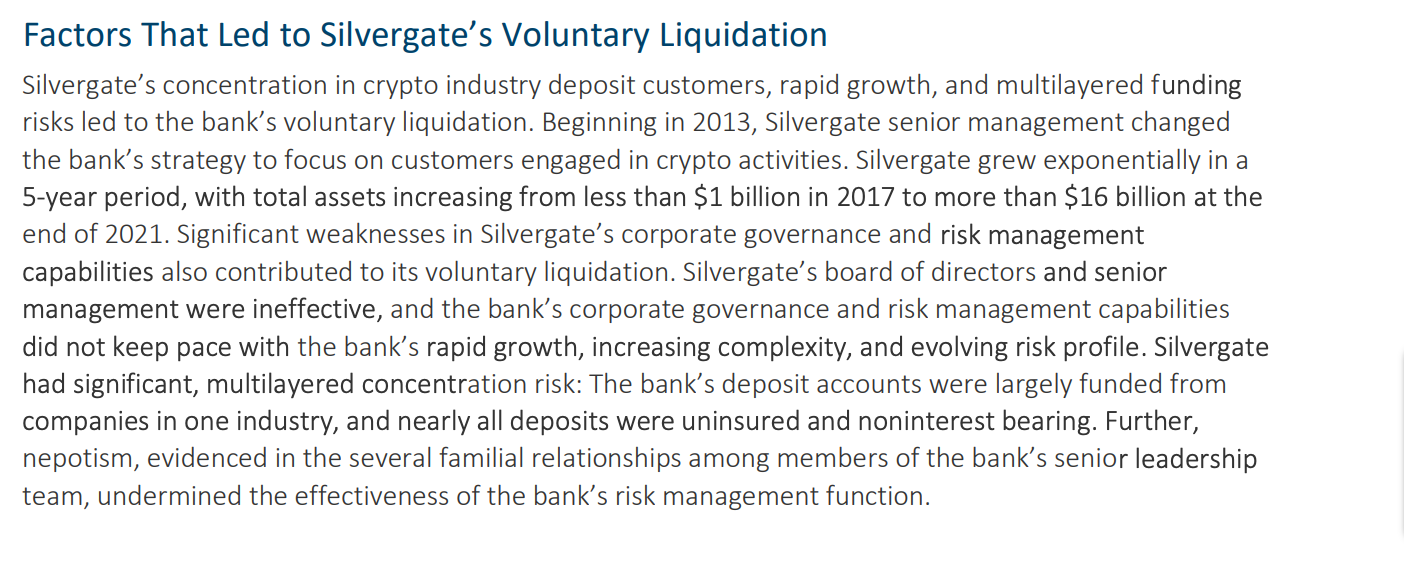Crypto Dependency Spurs Silvergate's Downfall
United States Federal Reserve inspectors concluded that the collapse of Silvergate Bank, known for its crypto-friendly approach, was a result of excessive reliance on volatile crypto deposits and poorly executed management practices. The findings were part of an executive summary released on September 27, outlining the details of the bank's downfall.

Rapid Growth but Insufficient Oversight
Silvergate Bank transitioned its focus towards customers in the crypto sector in 2013, witnessing substantial growth from $1 billion in deposits in 2017 to a staggering $16 billion by 2021. The bank became a dominant lender within the crypto industry, holding predominantly uninsured and non-interest-bearing customer deposits. The Fed inspectors criticized the bank's lack of adherence to standard banking regulations and the supervisors' failure to enforce risk protection measures amid rapid expansion.
Nepotism and Ineffective Leadership Exacerbate Risks
Beyond its crypto focus, Silvergate Bank was also criticized for its management structure. The inspection report indicated that nepotism within senior leadership circles compromised the effectiveness of the bank's risk management function. With family members occupying crucial leadership roles, the bank's governance and risk management capacity could not keep pace with its swift growth and the accompanying risks, eventually contributing to its voluntary liquidation in March 2023.










